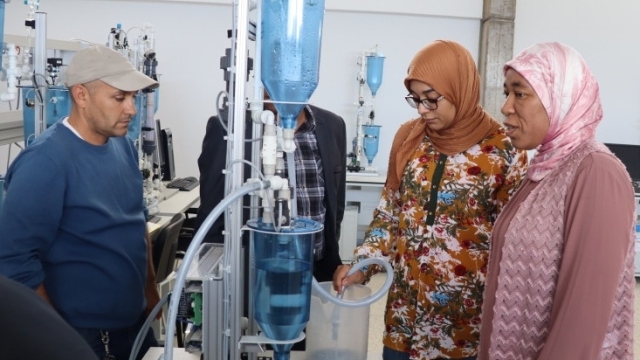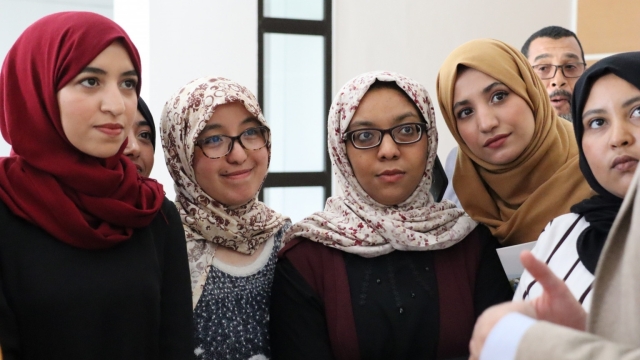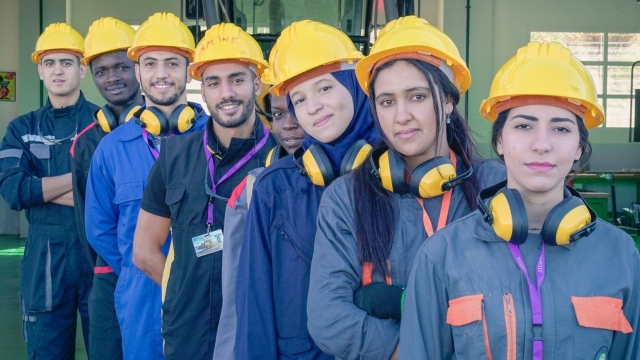The need to transition towards more environmentally sustainable modes of production and consumption has become imperative, for developed as well as for developing countries.
- Sustainable Development Goal 9 includes the target of upgrading infrastructure and retrofitting industries to make them sustainable, with increased resource-use efficiency and greater adoption of clean and environmentally sound technologies and industrial processes by 2030.
- Sustainable Development Goal 12 includes the target of achieving the sustainable management and efficient use of natural resources by 2030.
The transition to a low-carbon, resource-efficient economy requires systemic changes that will result not only in new products and services but also in changes in production processes and business models.
This greening of the economy will inevitably change the skills required and the tasks involved in many of the existing occupations.
There are three main ways in which the transition to a green economy affects needed skills:
- structural changes lead to increased demand for some tasks and a decrease for others;
- new economic activity will create new occupations and there will be a need for new skills profiles, qualifications and training frameworks;
- many existing occupations and industries will experience greening changes to tasks within their jobs, and this will require adjustments to the current training and qualification frameworks for these occupations.
The Green General Skill index identifies four groups of work tasks that are especially important for green occupations:
- Engineering and technical skills: hard skills encompassing competences involved with the design, construction and assessment of technology usually mastered by engineers and technicians. This know-how is needed for eco-buildings, renewable energy design and energy-saving research and development (R&D) projects.
- Science skills: competences stemming from bodies of knowledge broad in scope and essential to innovation activities, for example physics and biology. These skills are especially in high demand in each stage of value chains and in the utility sector, which provides basic amenities such as water, sewage services and electricity.
- Operation management skills: know-how related to change in organizational structure required to support green activities and an integrated view of the firm through life-cycle management, lean production and cooperation with external actors, including customers. Such skills are important, for example, for sales engineers, climate change analysts, sustainability specialists, chief sustainability officers and transportation planners.
- Monitoring skills: technical and legal aspects of business activities that are fundamentally different way from the remit of engineering or of science. They refer to skills required to assess the observance of technical criteria and legal standards. Examples are environmental compliance inspectors, nuclear monitoring technicians, emergency management directors and legal assistants.
In addition to these skills, a range of soft skills are also considered to be increasingly important, not only for green skills, but generally for “skills of the future”, including also those necessary for the Fourth Industrial Revolution. In particular, skills related to design thinking, creativity, adaptability, resilience, and even empathy, are regarded as critical.
The United Nations Industrial Development Organization (UNIDO) is promoting industrial skills development in developing and emerging economies, and can play a critical role in catalyzing the transition to a green economy.
UNIDO’s Learning and Knowledge Development Facility (LKDF) is based on Public Private Development Partnerships (PPDP) in which public and private sectors make a joint investment in a project implemented by a third party. The LKDF has implemented a variety of PPDPs across countries and sectors to establish and upgrade local industrial training institutions.
One example is the H2O Maghreb project, implemented by UNIDO and supported by the Government of Morocco, FESTO Didactic SE, EON Reality, the Moroccan National Office for Drinking Water and Electricity, and the United States Agency for International Development (USAID).
With the aim of improving water management practices in Morocco, the project has established a high-level training hub to provide market-oriented training in wastewater treatment and water management, and has developed curricula for existing water professionals that combines different professions and specializations related to water and wastewater for municipal and industrial applications.
In October 2020, more than 400 people, 45 speakers, and representatives of ten partners took part in the LKDF Forum 2020, three days of interactive sessions deliberating on “green skills for a sustainable future” and the start of what the World Economic Forum calls a “reskilling revolution”.
One of the key messages coming out of the discussions was that education is an investment and not a cost. As the development of green technologies moves ahead at pace, reskilling and upskilling current and future workers to fulfill the requirements of the green transition is a strategic move not to be missed.
This article was previously published on the United Nations Industrial Development Organisation (UNIDO) website.













